Feb 19, 2024 Sermon Good News by Arlene Lanting.


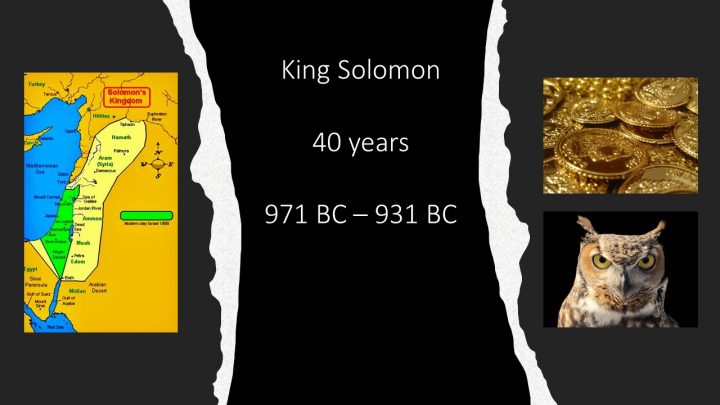
Solomon was known for his wealth and wisdom. He died in 931BC

Rehoboam was in conflict with his brother for the first 3 years of his reign. They split the nation after 3 years and Rehoboam reigned over Judah.
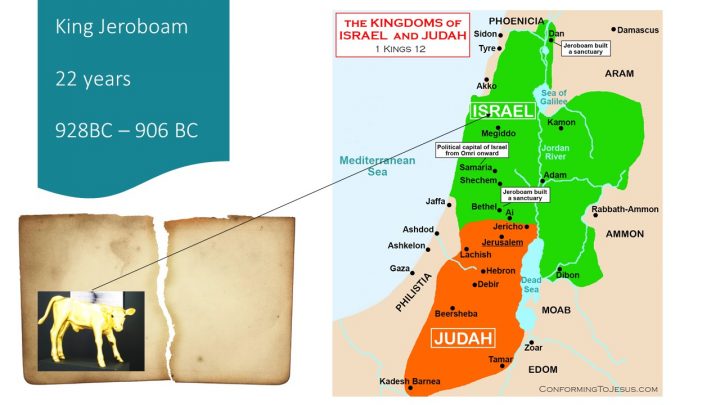
His brother took over control of Israel, the northern kingdom. One of the things he became famous for was creating 2 golden calves. This story will focus just on the kingdom of the North, Israel.
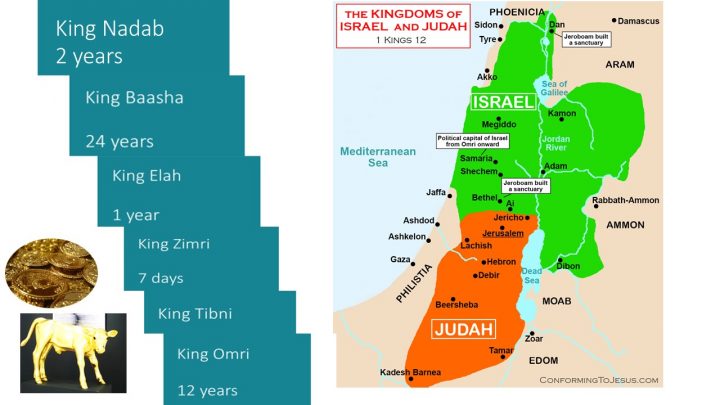
Each succeeding king became more wealthy and more accepting of idolatry.
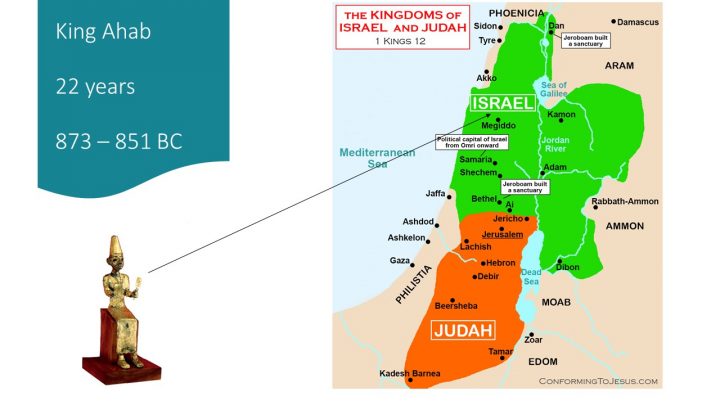
Then King Ahab comes to reign. He was particularly cruel especially in his treatment of the worshippers of God.
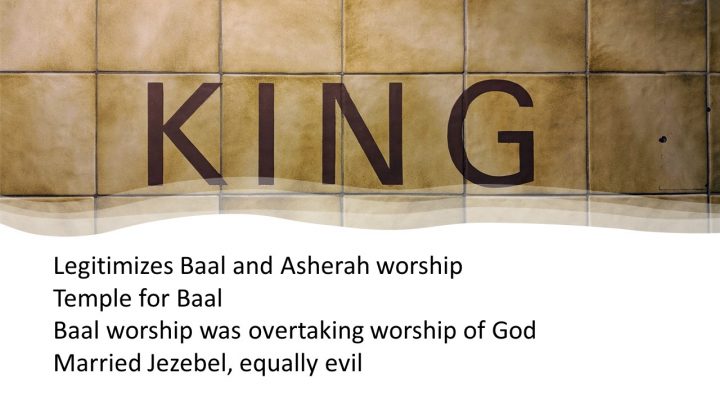
It is into this environment that we see Elijah come on the scene. He is appointed by God, to oppose a wicked king and bring revival to the land. He is bold, exhilarating, decisive but also wary and depressed at times. Elijah's name is Yahweh is my God.


No rain, no shelter from clouds. Just hot sun. Plants start to turn brown and whither.
Ahab is very angry at Elijah for the drought.


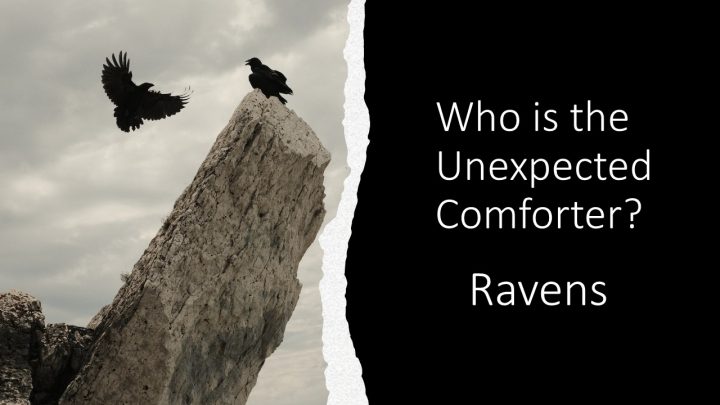



A widow without adult family does have anyone to provide for her. How could a widow help Elijah?
Elijah goes to Phoenicia, to Zarephath and he sees a widow picking up sticks.
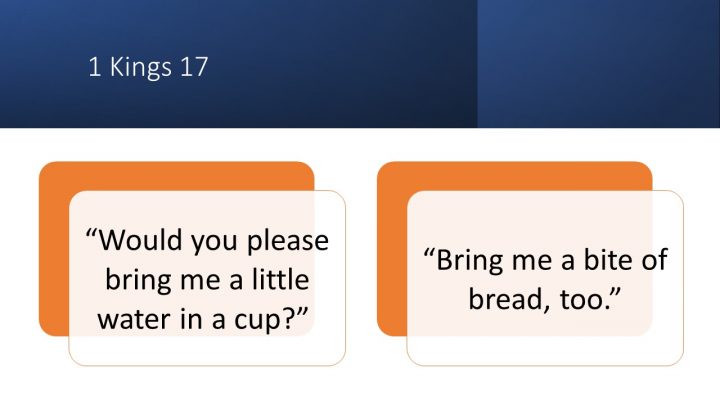
The widow explains she only has enough flour for one more meal for her son and she expects they will die.
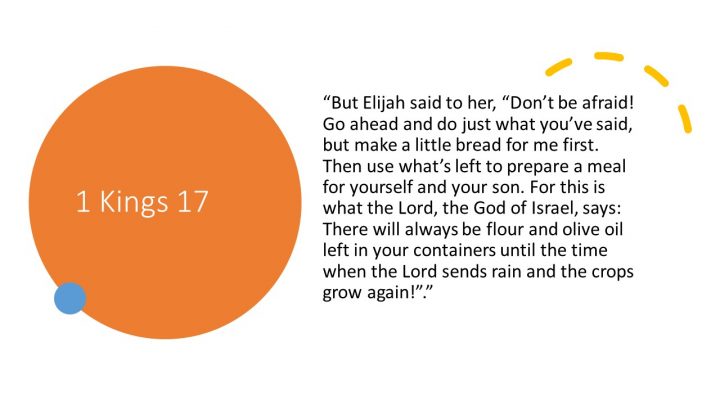
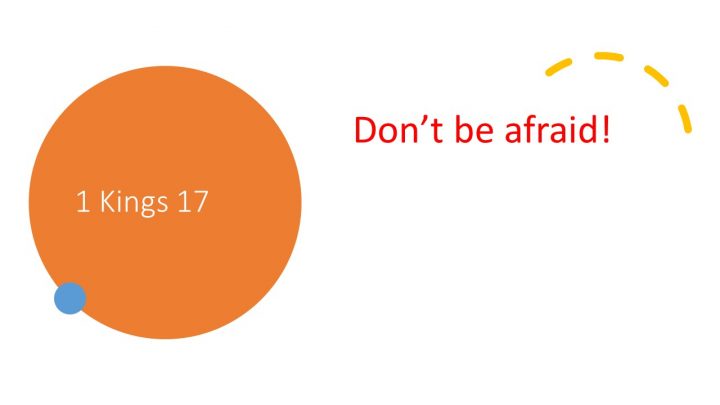
How could he expect her to do this?
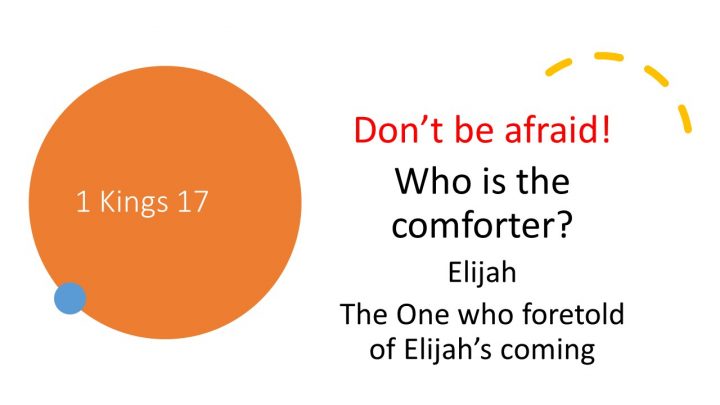
She sees this as the only hope she has. There is none other. They will die whether she feeds Elijah or not.
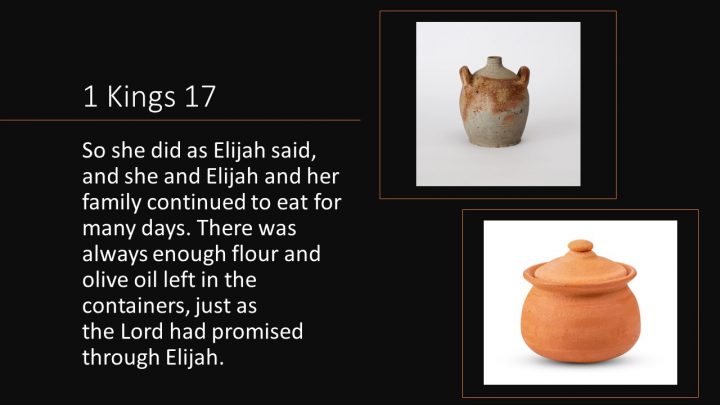
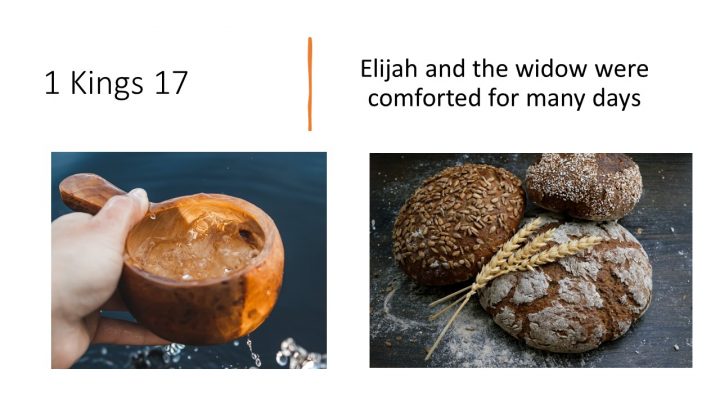
Who was the conforter? For the widow it was Elijah. For Elijah it was God.
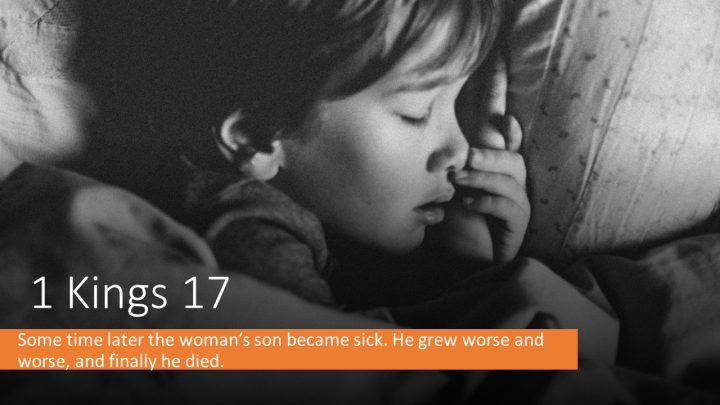
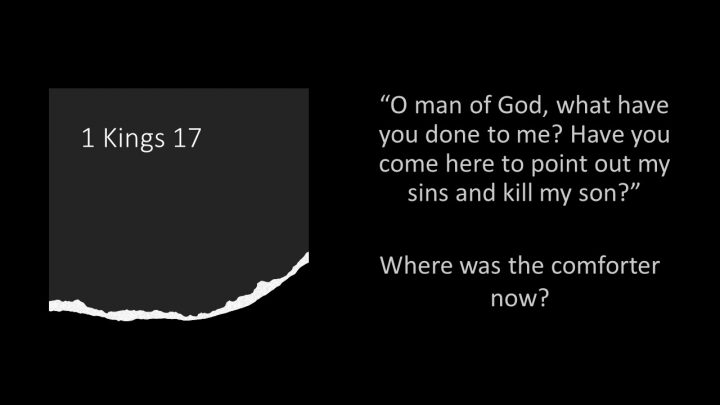
Elijah says “Give me your son.” And he took the child’s body from her arms, carried him up the stairs to the room where he was staying, and laid the body on his bed. Did Elijah know what he was going to do? He did not have a clue. No doubt he was scared and confused.
Then Elijah cried out to the Lord, “O Lord my God, why have you brought tragedy to this widow who has opened her home to me, causing her son to die?” He is blaming God is he not? What else is he doing? Confused, scared, but still he went to God and asked exactly what was on his heart. Why did you do this?
He had no idea what to do. And he stretched himself out over the child three times and cried out to the Lord, “O Lord my God, please let this child’s life return to him.” Pleaded with God. He still had faith in God even though he did not understand and was feeling conflicting thoughts.
The Lord heard Elijah’s prayer, and the life of the child returned, and he revived!
Who was the comforter? Clearly God.
Elijah brought him down from the upper room and gave him to his mother. “Look!” he said. “Your son is alive!” Then the woman told Elijah, “Now I know for sure that you are a man of God, and that the Lord truly speaks through you.”
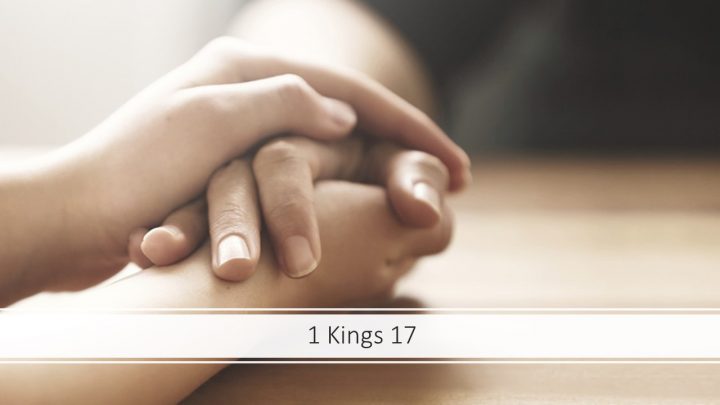
Have you ever been a comforter? Have you ever needed comfort?
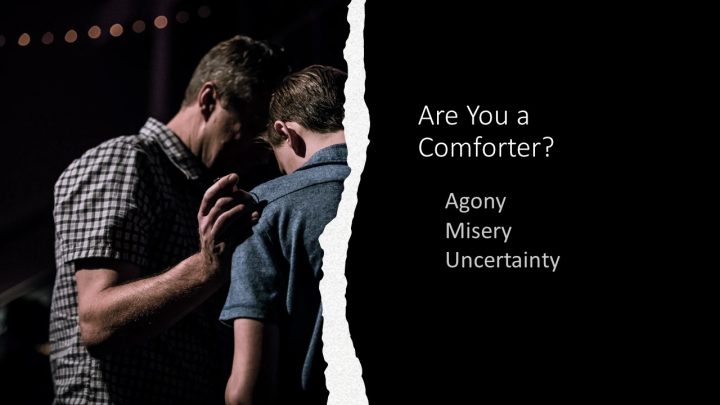
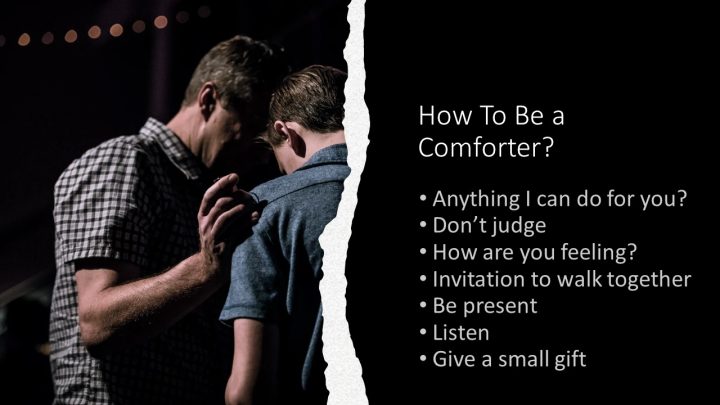

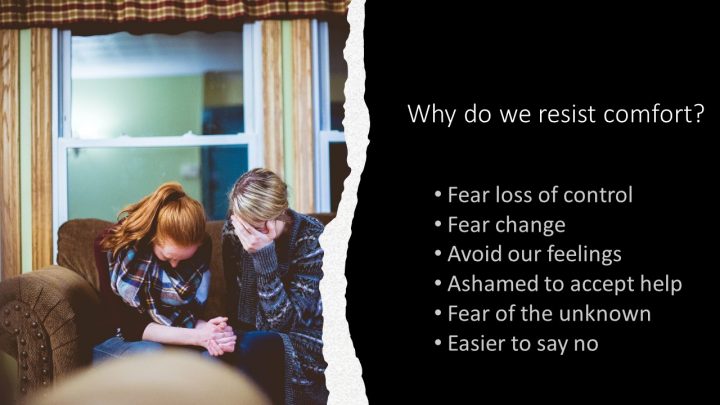
Lets look at the famous story Jesus told of a man in great need. He was beaten and left to die by thieves. A priest saw his extreme need. Why did he not provide comfort? Did he
- not have time?
- not know the man?
- have more important things to do?
- not want to get dirty?
- feel it was not his job?
- feel he was too holy?
A priest saw his extreme need. Why did he not provide comfort? Did he
- assume he was from a different tribe?
- dee that he was not familiar to him?
- not have the expertise to help?
- have commitments?
- have work deadlines?
- important ministry?
What about the Samaritan? He saw the extreme need. Surely he
- had a destination that day
- saw this man as a stranger
- had commitments
- did not want to dirty his clothes
- saw a man of different status
- had a purpose that day
What did the Samaritan see?
- A man in greater need than his own.
- A person in trouble
- A greater priority where other commitments could wait
- Clothes that could be replaced or washed or repurposed
- A human being in need
- A more urgent purpose.

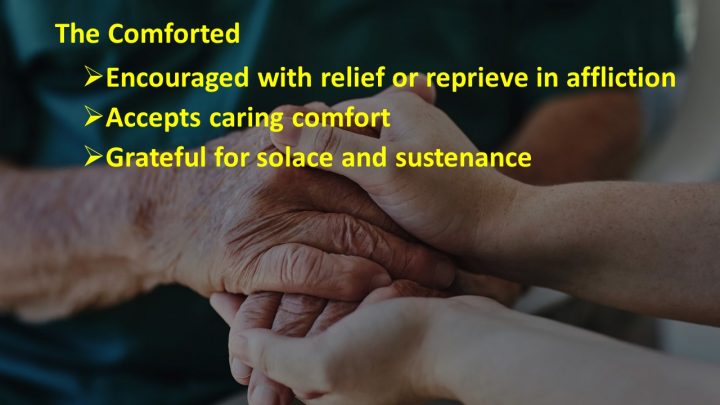
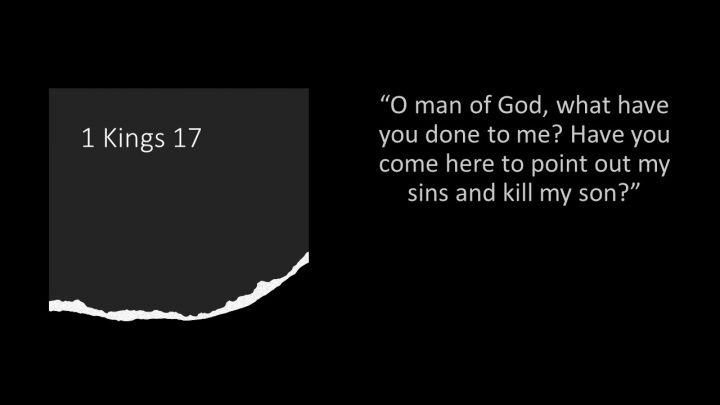
The widow blamed Elijah. but she was also suffering from great pain as she believed a sin she had carried likely a long time was to blame for her son's death. Have you come here to point out MY SINS and kill my son?
Elijah did not understand why this boy died. He did not know how to help, but he knew God could comfort the comfortless.
The widow was grieving for her son, and extended her anger to Elijah. He in turn was angry with God, but he did not prevent that from allowing himself to be in God’s presence, to voicing his pain to God. In the widow’s case, a miracle happened. Such dramatic miracles are not the reality for every trial in life. If that were so, we would become entitled and have no need to grow. Elijah felt compassion for the widow, which made him seek God out even though he did not understand and was angry at God.

We may not have a miracle like Elijah experienced in the time of trouble that was happening during King Ahab’s reign. We can still show sincere compassion like Elijah showed, seeking God’s guidance.
Are you willing to be a comforter to someone else in need?

If so, are you also willing to be comforted? When you allow yourself to be comforted, you will become a more genuine, compassionate comforter. When we provide comfort, solace, encouragement, it is a little bit of salve for wounded hearts. You may not be part of a miracle that you can see, but that should not be your purpose. That is God’s job, not yours. You can help by being present, doing something together, a comforting word, a prayer, a gift. These things all help someone to heal in small ways, and small steps. It can lay a foundation for a hurting heart to allow God to enter in. We can all be comforters and the comforted.
Words in Isaiah that speak of troubled times later in history but still relevant through all troubling times.
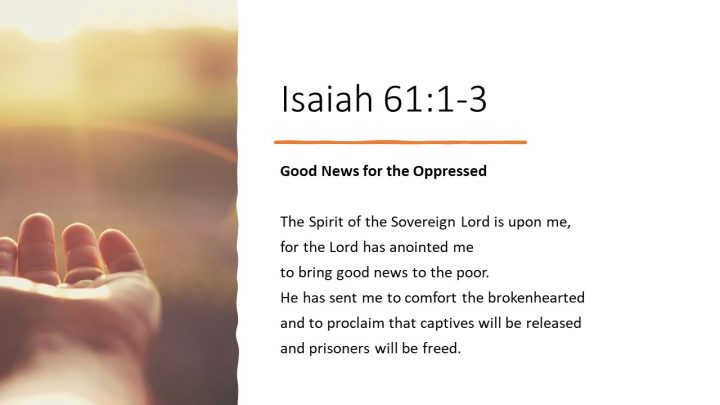
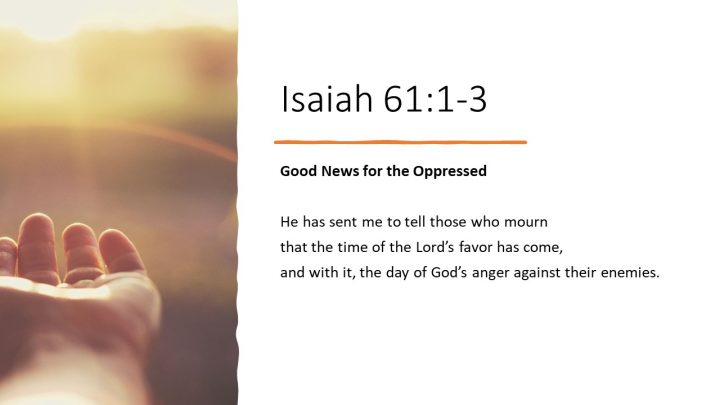
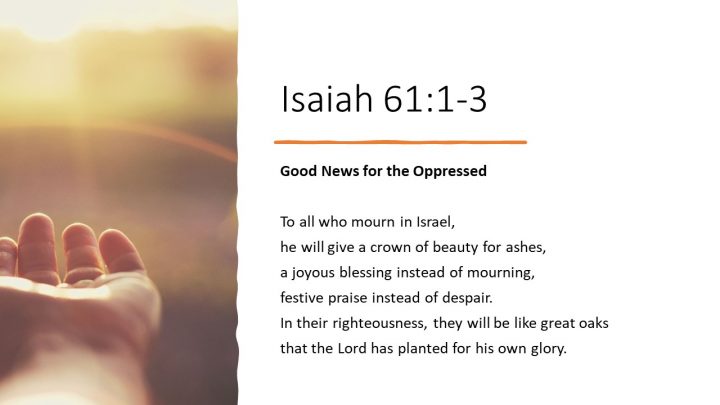
Do you want to be like a great oak, planted for God’ s glory?
Elijah was a great oak. Elijah did not know how he would be used by God, at such a hostile time in Israelite history. He simply trusted God and went where God asked him to go.
What is God’s message to you? What is your message to others? You do not need to be a preacher to give a message. Elijah did not preach to the widow. He showed God through his caring for her and her son’s welfare. He did not judge her. He also did not hesitate to point her to the comforter above.